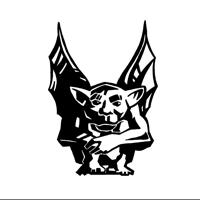Looking for a speaker for your next event? These are already prepared talks that Mike Bowler can give anytime. They can all fit into a 60-90 minute timeslot and are perfect for user group meetings or conference sessions.
These sessions are all being offered remotely over zoom or other video conferencing options as a complimentary service to community based events. If you want Mike at your corporate or for-profit event then contact him for pricing.
If you’re interested in any of these then contact Mike directly.
Getting Great Metrics From Jira
If you use Jira for your teams then you're likely already aware how poor the built-in reports are. There are very few of them and the ones that are present, are generally broken.
The good news is that Jira collects and stores a tremendous amount of data that we can use to make more data-informed decisions. The trick is knowing how to get access to that data.
In this talk, we'll look at an open source tool (JiraMetrics) that generates useful reports directly out of Jira. We'll look at the reports that it creates and talk about what we can learn from those, to improve our Kanban systems.
See also: JiraMetrics, the tool I'll be using to illustrate metrics.
Psychological Safety: What does the science tell us? A dive into neuroscience and psychology
The term "psychological safety" was originally coined by Amy Edmondson to describe a behaviour that we can observe. But what does it mean to be psychologically safe? Why is this such a powerful and critical aspect to ourselves, and those around us?
When we dig a bit deeper, we find that psychological safety is deeply connected to our own survival mechanism. If we're going to create a positive and safe environment, we'll need to address it. And in order to do so, it's helpful to understand what's really going on in our brains.
In this session, we'll look at what we know about psychological safety from neuroscience and psychology. We'll discuss what we might be able to do in our environments, regardless of our job title or role, to make things better for ourselves, and for those we work with.
See also: The SAFETY model of psychological safety
Introduction to the Anti-Anxiety Toolkit
Stress and anxiety are widespread in our industry and you may have already noticed that it’s really hard to coach someone who is highly stressed or anxious. It’s also really hard for you to personally perform at your best when you’re in that state.
In this workshop, you’ll learn (and practice) a collection of specific techniques to immediately release those feelings of stress or anxiety.
Techniques include bi-lateral stimulation through movement to rebalance brain activity and several techniques that will lower anxiety by triggering the parasympathetic nervous system: From relaxing the jaw to switching your eyes into peripheral vision.
In all cases, we’ll talk about some of the neuroscience and then practice the technique as a group.
See also: A recording of this talk with notes
Kanban, simple but not always obvious
We meet a lot of teams who say they’re doing Kanban and yet are only scratching the surface and not getting any of the benefit from Kanban that they could. They’re moving some cards across a board and think that’s all they have to do. Because it appears so simple, it doesn't occur to them that they might be missing the most important pieces to make it effective, efficient, and predictable.
Kanban is simple but it’s not always obvious. In this talk, we'll look at the minimum set of things that we must be doing to get the benefits we want.
When will we be done? An introduction to probabilistic forecasting.
Our clients and stakeholders almost always need an answer to "when will we be done?" The estimates we've come up with in the past are time consuming to produce and usually inaccurate.
The good news is that there is a way to answer that question based on historical data, that is easier and more accurate than traditional estimates. In this session, we'll talk about probabilistic thinking and introduce the notion of monte carlo forecasting to determine when we'll be done. You'll walk away with the tools you need to immediately improve your ability to answer "When will we be done?".
Clean Language : A deliberate language pattern for more effective conversations
Clean language is an easy to use technique for getting deeper and more effective conversations. It leverages our understanding of how the brain actually stores and accesses information to get past superficial conversations quickly so that we can get into the core of the problem faster.
In this workshop, you will learn some theory and then will get hands-on practice with the techniques that you can immediately take away and start using.
Useful for anyone facilitating retrospectives or understanding product needs or collecting feedback from others, all things that agile leaders have to do.
See also: An introduction to clean language.
